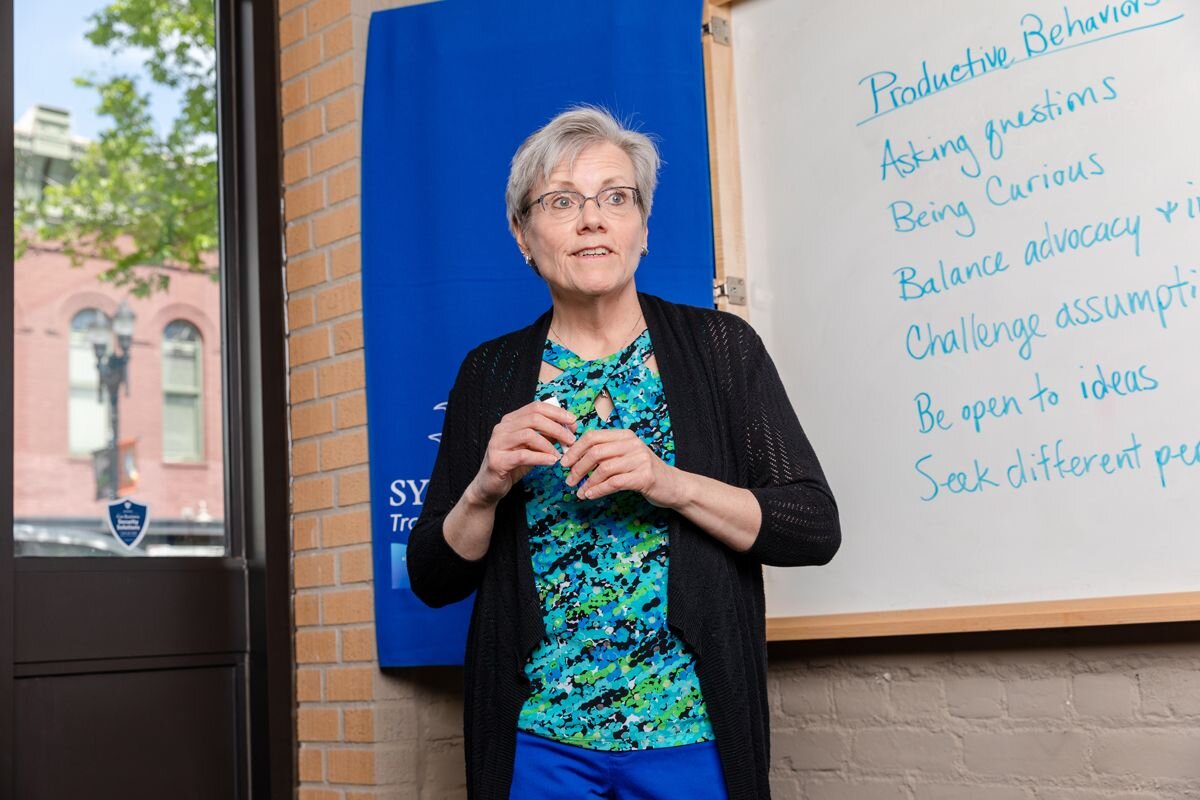
Blog
Integration Is the Next Step
It is time to take the next step to integrate DEI learning into all talent development work.
What I learned about the Fog while diving
Scuba tanks on a dive boat in the Caribbean Sea near Guanaja, Honduras, with two small tropical islands in the distance.
Spiral Up: Inspired by Tursi
Picture of a dolphin named Tursi in a lagoon next to a dock. There is a sign on the dock that says “Happy 50th Tursi” with balloons drawn on the sign
Recognizing Spiraling Down
I am putting out a series of posts getting specific on how to use the Spiral and will give some examples of how it can play out during this challenging time.
I have had several recent posts about the Fog so let’s start with some clarity around what Spiraling Down looks like and how to address it.
Stay In The Fog
I have been having those up and down days and I have been trying to figure out why I am so inconsistent, why can I not stay Spiraling Up and keep slipping back into the Fog or worse yet starting the Spiral Down?
What the Fog!????
In the Spiral of Accountability, the “Fog,” represented by the grey blob in the middle of the model, is those moments of uncertainty, confusion, worry when we have no clear path forward. I think we can all agree this experience with COVID-19 is definitely a Fog.
Adding Information
Even when we think we are clear we are often “adding” information that we really don’t have. Here’s a very personal example: as I was leaving my fitness studio the other morning, I asked my trainer (who is also my best friend—that is an important point) if she “had a busy day”. She replied, “yes”…
Power
One of the books that has greatly influenced me over the years is (surprise!) Synchronicity—The Inner Path of Leadership by Joseph Jaworski. I have read this book several times, consistently taking something new from it each time. But there is one quote that has rung in my ears during the entire 20 years of reading this book.





